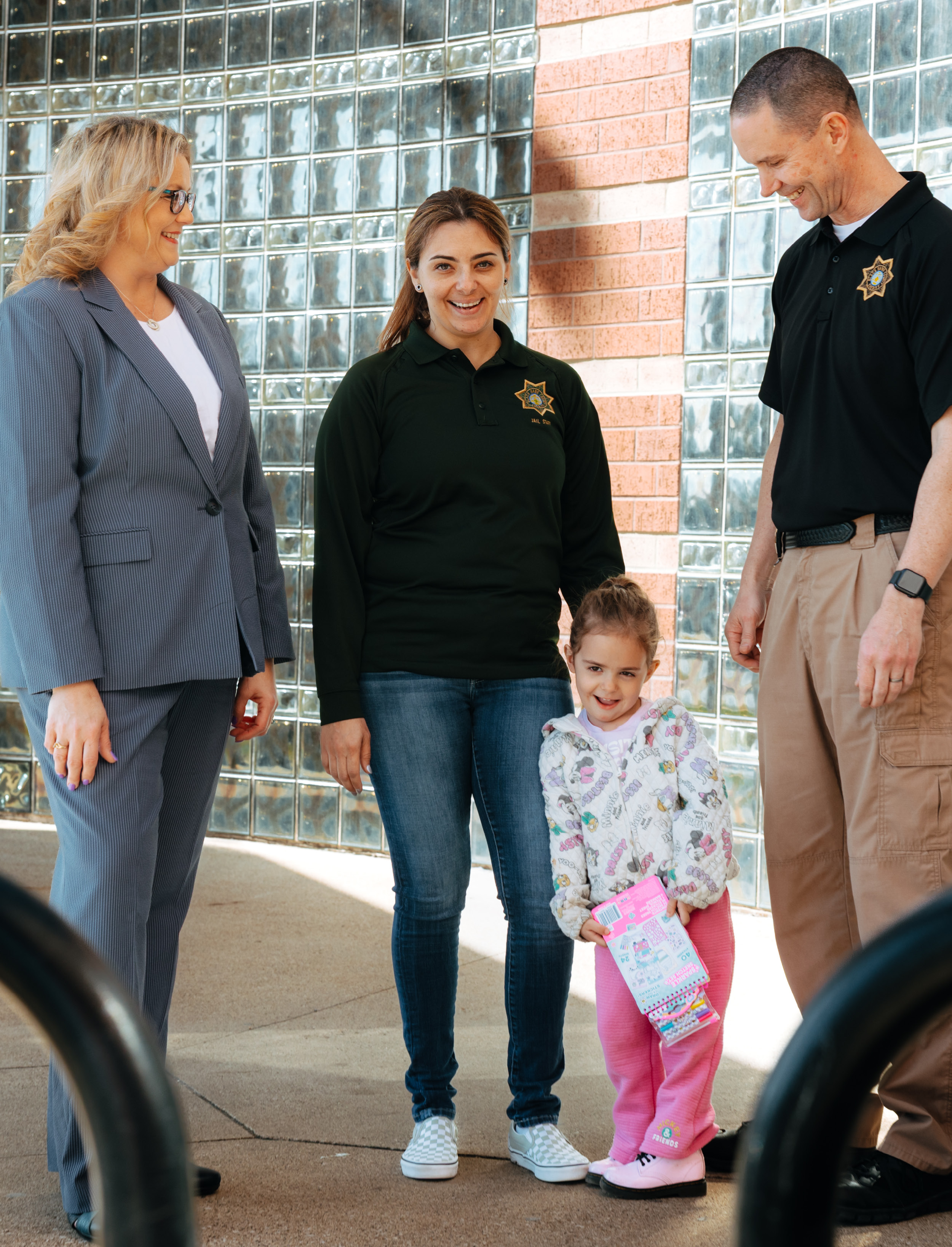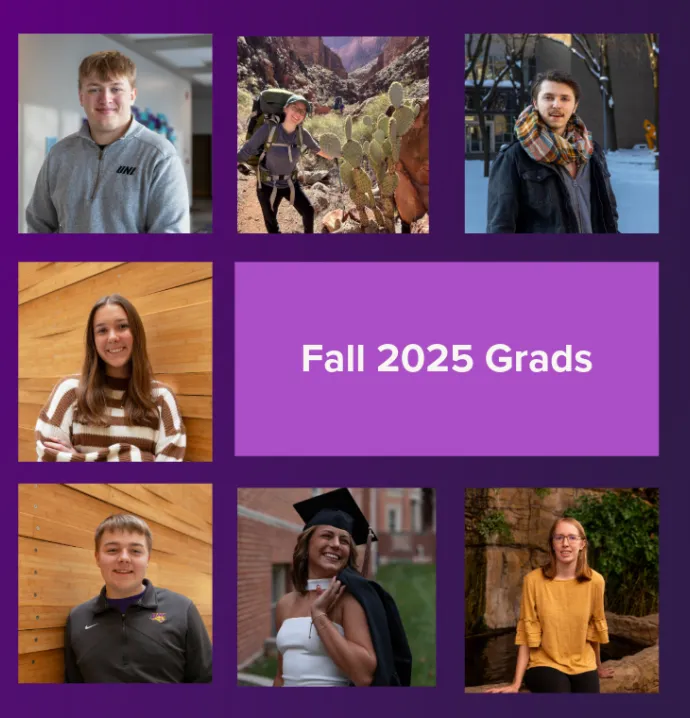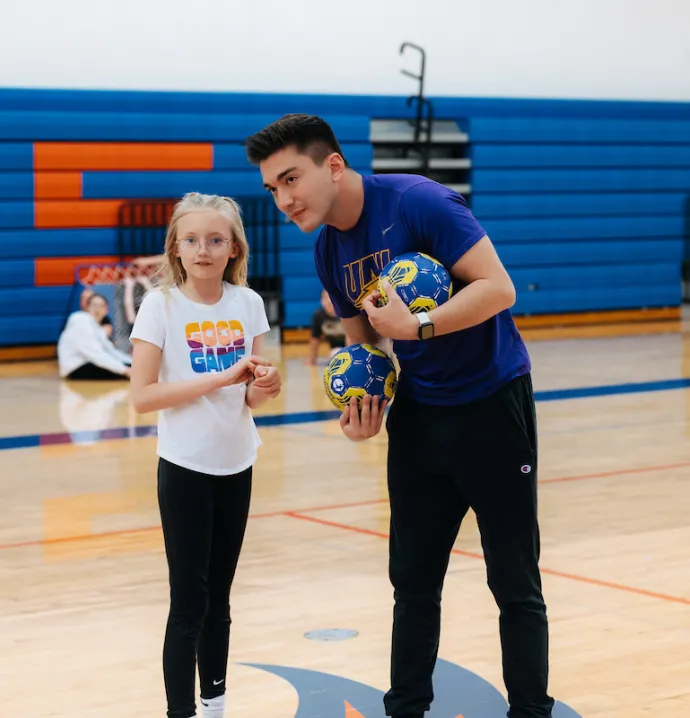Helping students cross the finish line
Helping students cross the finish line
 When an email from Professor of Criminology Gayle Rhineberger popped up in Lauren Goodman’s inbox in January 2024, it was unexpected — and it couldn’t have come at a better time.
When an email from Professor of Criminology Gayle Rhineberger popped up in Lauren Goodman’s inbox in January 2024, it was unexpected — and it couldn’t have come at a better time.
Goodman had just started working for the Black Hawk County Sheriff’s Office as a booking clerk after spending a year in the workforce. She’d previously been a stay-at-home mom and had contemplated completing her criminology degree; she just hadn’t taken the steps to do so.
Rhineberger reached out to Goodman as part of an effort to reconnect with criminology students who had left UNI for various reasons but had not completed their degrees.
The primary motivation for doing so was that the department had recently removed its exit GPA requirement and had launched an online program in fall 2023. By December that year, Rhineberger realized that numerous students would be able to complete their degrees with minimal or even no additional coursework.
She worked with a records analyst in the Registrar’s Office and discovered that 60 students met the criteria of having the necessary GPA and fewer than 30 credits left to complete.
In January 2024, Rhineberger began reaching out. She used email addresses listed in the university’s system but also connected with people on LinkedIn and Facebook — any way she could to get in touch.
She highlighted the new online options, emphasizing that students could return and complete their degrees from wherever they were.
The initiative was also part of a broader effort by the College of Social and Behavioral Sciences to support students in meeting their career goals.
Within 24 hours, Rhineberger heard back from two students who were excited to learn how easy it would be to finish their degrees. Ultimately, four students were able to graduate without even needing another class.
“To say they were excited is an understatement,” Rhineberger says.
For Goodman, that was certainly true.
She learned she had only a year left to complete, and since she was using veterans’ benefits, she needed to take one class in person while completing the rest online. The opportunity has also allowed her to study abroad, something she had always dreamed of. Now that she’s earned her bachelor’s degree, she has more career options.
“I thought my career goals ended when I was a stay-at-home mom, and let’s be honest, I’m not getting any younger,” Goodman says.
“I now have a career, and when someone asks about my degree, I will proudly say that I have a B.A. Considering my circumstances, I find I am more proud than if I had gotten it when I was younger.”
The project took time and effort for Rhineberger, as some classes students had taken while on campus no longer existed. She had to do extensive manual calculations to determine how many credits a student actually needed to take.
“It was very labor-intensive, but it was worth it,” she says.
The process was simple for the students, though. For instance, one student Rhineberger connected with — a Cedar Falls public safety officer — only had three credits left to complete. Rhineberger gave him a practical field experience credit, and his degree was done.
Why go to all this effort? Rhineberger knew that many people needed a four-year degree to advance their careers.
With curriculum changes and the flexibility of online courses, she saw an opportunity to make it happen.
“It’s definitely outside the basic scope of my job, but we are very student-focused and driven in the department,” she says. “We work really hard to know what is happening nationally in our field and then adapt our courses based on what students need. This was just another step in achieving our student-focused goals and our commitment to public service.”
Rhineberger’s effort highlights the flexibility of UNI’s online programs and demonstrates the university’s commitment to helping students from all walks of life complete their degrees. By going the extra mile to ensure that former students had a clear pathway to graduation, Rhineberger — and the college — reaffirmed its dedication to student success.
Her initiative not only changed the lives of individual students but also showcased how universities can take an active role in supporting students beyond the traditional classroom experience.
With the online criminology program now thriving, quadrupling from 20 undergraduate students in fall 2023 to 80 in spring 2025, it’s clear that the department’s student-centered approach is making an impact.




